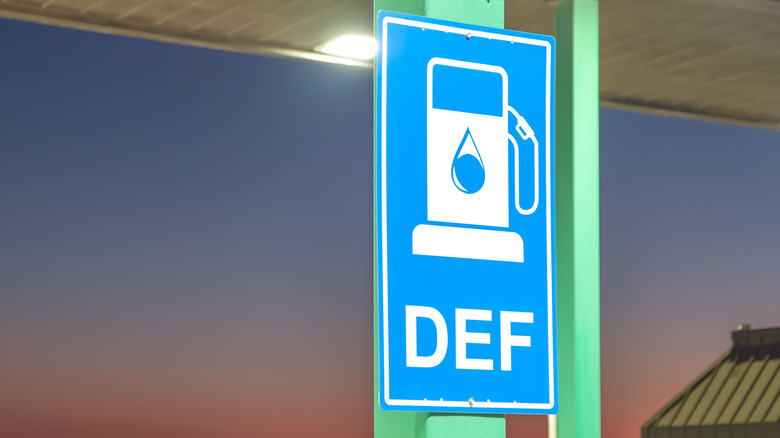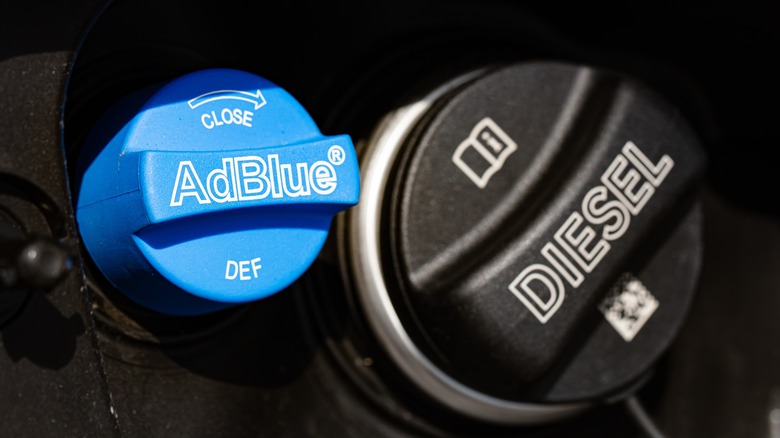What Does Diesel Exhaust Fluid Do & What Happens If You Run Out?
We may receive a commission on purchases made from links.
With the Environmental Protection Agency enacting stricter diesel engine emissions restrictions in 2010 and Volkswagen infamously getting caught dodging them less than a decade later, diesel power has undoubtedly seen better days. VW's "Dieselgate" fiasco was well documented, with the controversy resulting, at least in part, due to the automaker's attempts to circumvent new EPA rules concerning the level of Nitrogen Oxides (NOx) diesel engines were allowed to emit.
Even as VW sought a way around the NOx restrictions, many automakers found a better fix for the new rules enforced on diesel engines. That includes the development of an additive known as Diesel Exhaust Fluid, often referred to as DEF for short. Introduced in 2010, the DEF additive is a compound made from a mixture of 32.5% synthetic urea and 67.5% de-ionized water. It is designed to help reduce the emission of NOx as part of a Selective Catalytic Reduction process, which the American Petroleum Institute details as, "an emissions after-treatment technology that converts NOx in the diesel-engine exhaust stream into nitrogen and water vapor."
The DEF additive aids that conversion when combined with diesel exhaust produced by the combustion process. Diesel Exhaust Fluid is not already added to diesel fuel pre-pump. Instead, it is pumped into a separate reservoir through a separate nozzle at diesel gas pumps and injected into hot exhaust, reducing by an estimated 90% the harmful emissions of diesel engines, which are still widely regarded as more efficient than those running on standard gas.
Running out of DEF can seriously damage a diesel engine
Given its function, you clearly do not want your diesel engine to be operating without Diesel Exhaust Fluid. Apart from the gas pump where prices can fluctuate as dramatically as gas itself, you can purchase DEF from several retail outlets that offer automotive supplies, including Walmart and Amazon. Thankfully, with estimates claiming that a gallon of DEF can last between 300 to 500 miles, you won't have to fill up that often.
But you need to keep your DEF tank full of the NOx reducing compound. It's not entirely because you want to limit your fossil fuel burning vehicle's negative impact on the environment, although, just to be clear, there's no chance your diesel engine will pass an emissions test without the aid of a DEF in the Selective Catalytic Reduction process. Apart from that concern, some vehicles will not even crank when your DEF tank is dry.
As for vehicles that are running when the DEF tank hits empty, the perils are real, and might include difficulty accelerating, a damaged DEF header sensor, and even a clogged exhaust system that could lead to your powertrain shifting into speed and power limiting "limp mode." The last two issues will likely require expensive diagnostics tests and repairs to fix. However, with most cars offering adequate early warning systems to alert you about low-DEF levels, there's no reason DEF deficiency should join the list of more common diesel engine problems.

